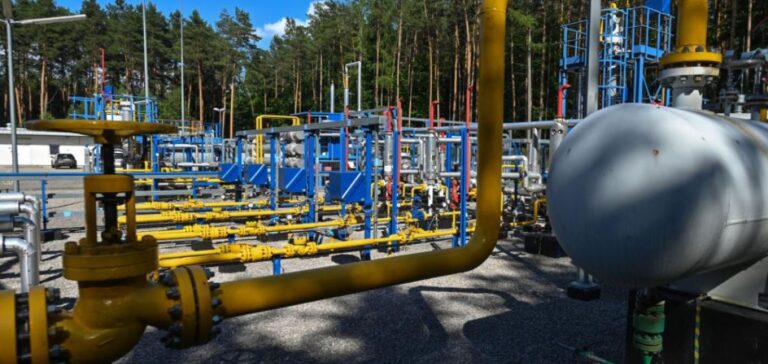The price of gas in Europe exceeded $620 per 1,000 cubic meters during trading on Monday, February 10, according to data from the ICE exchange in London. This is the first time since February 2023 that such a threshold has been reached, marking an increase of more than 4% in a single day. This price surge comes as European gas storage levels experience a significant decline, driven by sustained winter consumption.
A record-high gas withdrawal rate
Data from Gas Infrastructure Europe (GIE) indicates that underground gas storage levels in Europe have fallen below 50%, standing at precisely 49.99%. Since the beginning of the heating season, over 53.2 billion cubic meters have already been withdrawn, accounting for more than half of the reserves accumulated for the winter period.
Compared to previous years, the last withdrawal season ended on March 31, 2024, with a storage level of 58.44%, a record for this period. Currently, storage levels are 8.18% lower than the five-year average for this time of year. These reserves are not only lower than those recorded at the end of the last fall/winter season but also below levels observed at the end of the 2019-2020 and 2022-2023 heating seasons.
High consumption despite solid reserves
Despite the high withdrawal rate, total underground gas storage in Europe still amounts to 55.5 billion cubic meters, the fourth-highest level ever recorded for early February. However, the current rate of withdrawal remains exceptionally high, with February’s consumption ranking as the second highest on record for this month.
This combination of strong demand and declining stocks is contributing to the rise in European gas prices. The increased reliance on winter reserves and weather forecasts predicting a cold snap towards the end of the week may further support this trend.
Renewable energy and market impact
Gas price movements are also influenced by renewable energy production. In January, wind energy accounted for an average of 21% of the European Union’s electricity generation. However, this figure dropped to around 13% in early February, increasing reliance on alternative energy sources, including gas.
The interplay between energy demand, weather conditions, and underground gas storage levels remains a key factor in shaping market developments in the coming weeks.
##






















